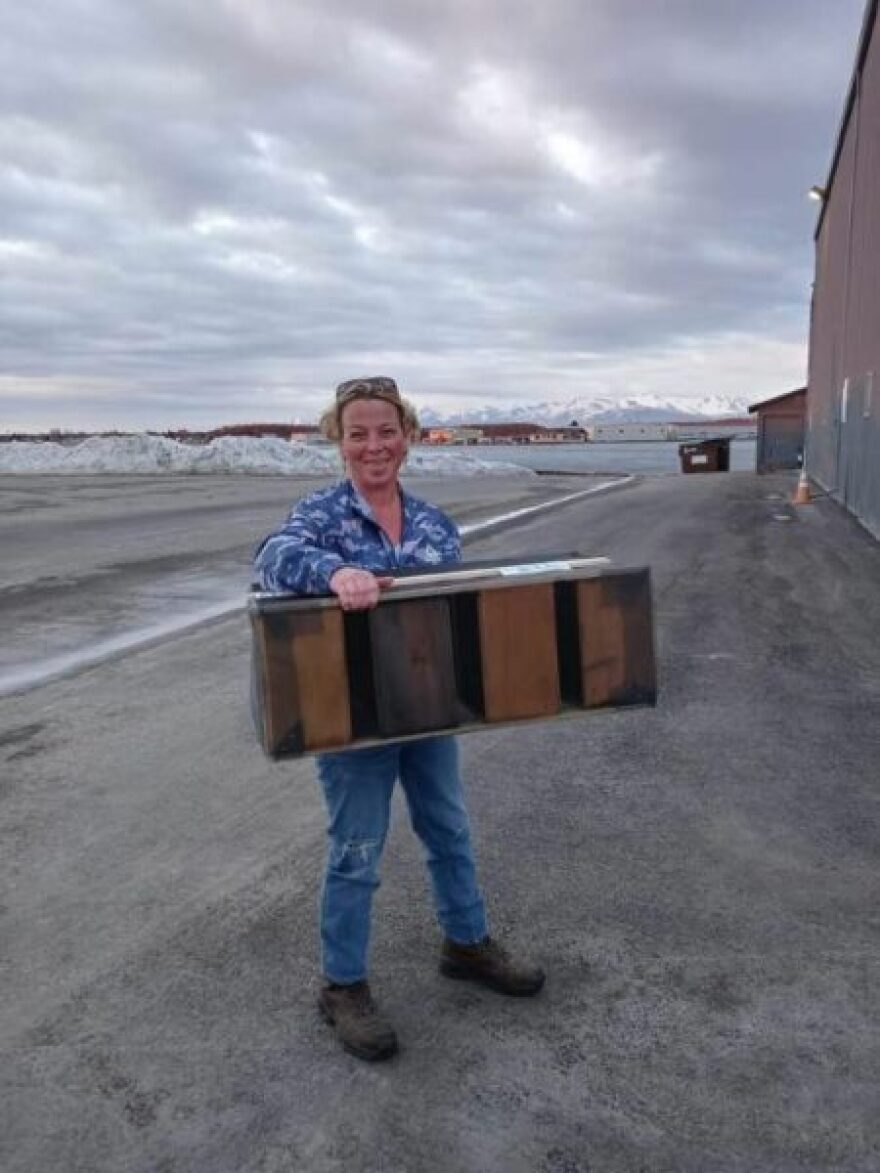Bill Crumpler stood in front of a handful of honeybee hives tucked away on conservation land in the industrial outskirts of Atlanta.
These were not his normal bees.
They were rescued from among millions of honeybees that died in a Delta cargo bay in the April sun. The more than 600 pounds of bees were supposed to go from Sacramento to Anchorage, but due to flight cancellations the bees ended up at Atlanta’s Hartsfield-Jackson airport.
“They’re thriving compared to what they came from,” Crumpler said, gesturing toward the hives with a smoke pot in his hand. “They’re still alive. They’re building frames out. The queen is laying eggs.”
While the Alaska-bound bees never made it to their final destinations, the quick work of a well-established colony of beekeepers united communities across the continent, and the honeybees found new homes across Georgia. And 4,400 miles away, in Alaska, one local beekeeper went to great lengths to make her beekeepers whole again.
While the rescue attempt happened in Atlanta, Sarah McElrea was waiting at the Anchorage airport when she heard most of the bees had died.
“Very devastating,” she said from her backyard in June. “Still just nauseating to think about what happened.”
McElrea sells bees and teaches classes from her home in Soldotna. She was gutted by the tragedy. And it also took a huge financial toll.
McElrea had to buy an entirely new shipment of 5 million bees from her supplier in Sacramento. But this time, she and her husband stayed with the bees. They booked flights to Seattle and drove down to Sacramento, where they picked up the bees in person.
“It was high 80s at 9:00 at night when we left Sacramento with the bees,” McElrea said. “And it’s really dangerous, obviously. I mean, that’s what killed them in Atlanta.”
They had to get creative to keep them cool. McElrea’s husband made a makeshift pipe to get cold air to the bees in the back of two rental vans. They drove to Seattle and made sure the bees were carefully loaded on the flight back to Alaska.
It was a lot of stress and not a lot of sleep. But she said it was worth it.
“Boy, what a sigh of relief,” McElrea said. “It was an incredible feeling to be back on the ground in Alaska. The sense of relief is pretty indescribable.”
From there, they drove north as far as Fairbanks and south to Homer to get the bees to their new homes.
One of those homes was Jim Allemann’s, in Nikiski. At a beekeepers potluck in McElrea’s backyard this June, he sat in a camp chair amongst a small circle of local beekeepers, exchanging stories and advice.
“You just look forward to kind of catching up with Sarah and what’s going on in the bee world, ‘cause she knows what’s going on,” Allemann said. “
First-time beekeeper Brandy Nelson of Soldotna took McElrea’s class this winter and said she was excited to see how her hive does this summer.
“I think we’re really lucky to have someone who loves bees so much,” she said at the potluck.
There’s not a long-term solution to the bee transportation problem yet. And McElrea won’t be getting another shipment until next year. But for now, the weather seems to be rewarding her efforts.
It’s been a particularly warm spring and summer for Southcentral Alaska. And McElrea said her bees are loving it.
“I always say this time of year, you know, this is our year — this is going to be an amazing year. This is the year to be a beekeeper,” she said. “We’re about due for a really buttkicking year, I think.”
This story was produced in collaboration with WABE in Atlanta, Ga.



